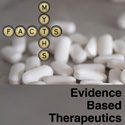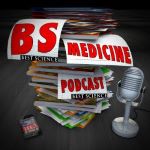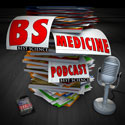Episode 74: Vitamin A, B, C, NOT D, and E – not all letters are created equal
In episode 74, Mike (Bert) and James (Ernie), along with Tina (Betty Lou) continue their stroll down medical Sesame Street and take a look at the evidence behind Vitamins (Letters) A,B,C, and E. Lo and behold, they find that not all letters are created equal and some are even quite bad. At the end, both Mike and James join the Cookie Monster for some Vitamin enriched (just D that is) treats and, they get Tina to pay.
Show notes
2) Two systematic reviews shows increased mortality for beta-carotene, Vitamin A, Vitamin E, but not for selenium and Vitamin C
Cochrane Database Syst Rev 2008;(2):CD007176
3) BMI – not too fat and not too skinny
J Am Geriatr Soc 2010;58:234–41
4) Vitamin B (folic acid) and homocysteine – 1 positive trial, 3 negative trials
J Am Coll Cardiol 2003;41:2105-13
4) Measuring hsCRP—An Important Part of a Comprehensive Risk Profile or a Clinically Redundant Practice?
PLoS Med 2010;7:e1000196



